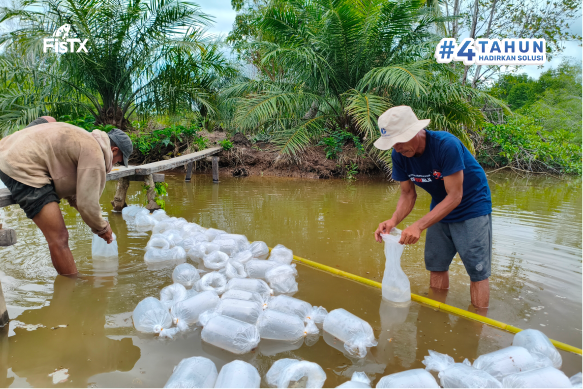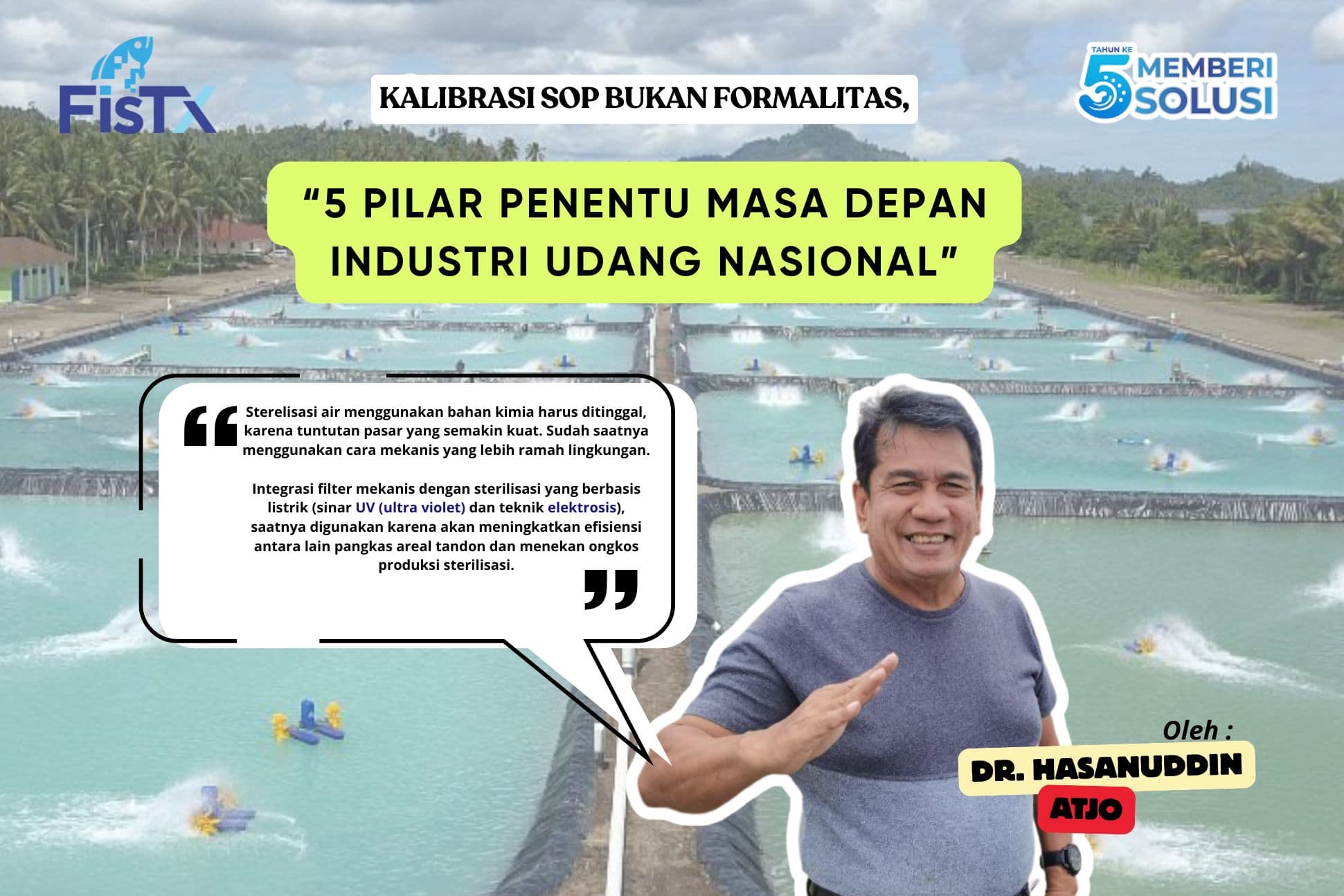
OPTIMIZING FEEDING IN EARLY SHRIMP CULTIVATION
Shrimp cultivation in Asia has grown exponentially over the past four decades, in response to high global market demand. At the same time, shrimp production systems have shifted from extensive to intensive to meet market needs. This is closely related to smart feeding practices to maintain environmental sustainability and optimal shrimp growth. Feeding shrimp vaname DOC 1-30 usually involves using the Blind Feeding method. The Blind Feeding method is a feeding technique used densely after shrimp post-larvae stocking in ponds. This method is based on estimating the shrimp population in the pond sections.
Blind feeding is implemented during DOC 1 - 30 with a feeding ratio ranging from 4 to 7.3 kg/100,000 post-larvae. However, the feeding ratio recommended by FisTx ranges from 2.5-3 kg/100,000 post-larvae by adjusting to the cultivation area in Indonesia. The Blind Feeding phase is considered crucial as it is a transition phase from natural feeding to artificial feed. During the post-larvae phase, shrimp tend to feed on natural food such as artemia. One common issue faced by farmers is overfeeding when applying blind feeding.
Thus, there is a paradigm shift towards considering the feed given at the early stages of cultivation only for plankton growth. However, a more prudent approach can be taken. One of them is by providing artemia feed as a starter feed. This aims to prolong the adaptation process of post-larvae to the feed provided. According to research (Anh et al., 2011), at PL15 stage with artemia feeding treatment, better SGR and body length are achieved by 4% compared to commercial feed. Research (Hoa et al., 2007) suggests that artemia biomass can be a good alternative, rich in nutrients and easy to culture. Artemia feeding is usually done at the beginning of cultivation during DOC 1-15 with a ratio of around 0.2L/100,000 post-larvae.
Read More Articles

Collaboration between CarbonEthics, SAMPAN Kalimantan, and FisTx Brings Sustainable Silvofishery to Dabong Village
23 September 2025

UV in Shrimp Ponds: What is the Effective Dosage to Eliminate Pathogens?
07 August 2023

Embracing 2026: 5 Pillar Strategy to Strengthen the National Shrimp Industry to be Globally Competitive
06 February 2026